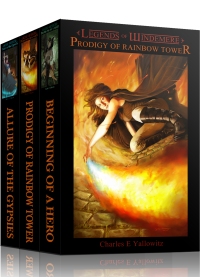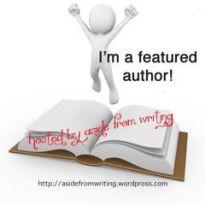
I think this is another character type that gets overlooked or done with minor attention to anything other than the role. Any genres that touch on there being a military force will note that there are generals. Might not be much of a hierarchy beyond them, but you have military leaders. They typically fall into these categories:
- Evil general who is trying to turn the kingdom into a military state. Sometimes they’re being tricked into doing so by another villain. Other times, they simply think the leader is weak and strength is needed. We’re talking full authoritarian here.
- Loyal general who stands beside the leader through every event. They will act as adviser and many times sacrifice themselves over the course of the story. This is the total opposite of the first example.
- Mentor for the hero who either trains them at the start or does so at a midpoint. A general is seen as someone with experience and discipline, which is what they are passing on to the hero. This also establishes a neutral hero as having taken a side in some fashion and connects them to the ‘good’ kingdom.
- An arrogant adversary for the hero who will inevitably be killed in a battle. Again, we see a polar opposite of the mentor here.
- Fodder tossed onto the battle as either an ally or enemy. There’s nothing to them beyond being a superior warrior who the other soldiers listen to. Sometimes it’s not even clear they’re the general other than they’re giving orders.
Those are very broad, so you can say that any character could fall into those if you stretch things enough. The difference here is that generals tend to be thrown into these categories with nothing else given to them. Authors don’t typically give them depth unless they’re the main character, but that’s rare. So, they are relegated to these roles that are exclusively secondary and tertiary. Kind of a shame even though it makes senses.
The challenge with a general is that one doesn’t start out that way. You need to work your way up to that rank, which takes years. If that isn’t the main story then it’s going to be a slow and boring slog to the fun part. Even if you start with the hero having the rank, there’s a risk of boring. Generals are experienced and skilled, so they won’t be learning as they go like other heroes. They can handle most combat situations in a way that blocks tension from being fostered. You have a lower chance of mistakes or them facing a new situation. It’s why many authors gravitate towards novice warriors and inexperienced youths. These are characters that readers can relate to because they are learning about the world and how to grow as well.
Of course, you can always take a general who has lost his army and position. The former general is a common mentor and villain. Many times they’ve become bitter and depressed, so they join for a last bit of glory. Maybe the hero has a spark that they remember possessing and they want to see if they can keep it alive. I’m on the fence about this because it doesn’t really work off the general concept. It would be like any other previous career that brings in experience, skills, and history, but might not have the biggest story impact. Not when compared to a figure active in that role.
I’ll be touching on what I consider the 2 types of generals later this week. For now, I’m going to open the floor. What do people think of generals or any military leaders being used in fiction, especially fantasy?





You are a wealth of information, Charles! Great post and tips! I love battles in fantasy. And as you mentioned, these commanders of armies are targets with their flags and helms marking their ranks. I think of Éomer, who acted as a lieutenant in LoTR, since Théoden rode out to war and commanded the army. In a kid’s fiction book, The Princess and Curdieby George MacDonald, a king and his general rode into battle. In another, The Cry of the Icemark by Stuart Hill, the very young queen acts as a general over commanders. As you mentioned, a soldier needs to learn the craft of battle.
For some reason, I’ve read more about naval leadership than any other form of military, though my father was a sergeant in the Army. I found the Aubrey–Maturin series by Patrick O’Brian fascinating because they discuss how a character rose up through the ranks. Those are historical fiction, rather than fantasy. Even Jane Austen touched on the subject in her novel, Persuasion when she mentioned characters (in the same era as the Aubrey-Maturin series) rose up through the ranks in a time of war.
LikeLike
I’ve noticed navy captains get more attention in fiction. I think people find those kinds of stories more exciting because there are sea monsters and storms.
LikeLiked by 1 person
Sea monsters are fun! That was my favorite part of Aquaman’s movie. Well, that and Jason Momoa. 😄 But the battles of LoTR were very satisfying.
LikeLike
I never think of a general as being interesting enough to maintain protagonist status. I guess that’s why there aren’t more stories of them.
LikeLike
It probably depends on the genre. War stories can focus on them.
LikeLiked by 1 person
True.
LikeLike
It’s interesting to contrast leaders like generals with the kings and queens who are so prevalent in fantasy. Being a general requires a lot of training and preparation, as you point out. Authors who haven’t been military themselves might be intimidated and concerned about not getting it right. Whereas, royalty is something you can be born to, and there’s a certain mystical quality to being a “true heir” like King Arthur or Aragorn. So the author might find this easier to call on than being a general who has to be promoted to that rank by someone else.
Those books that do feature generals and commanders seem to be series, like Honor Harrington, where you do see the long growth and preparation to become a general.
LikeLike
Military leaders also differ between medieval and modern times. There’s a sense that a general in fantasy is going to be in the fray. They’re a powerful and skilled warrior along with a tactician. Modern generals get written as those who aren’t in the trenches. They’re shown as more intellectual and almost management-like.
LikeLiked by 1 person
Anything works if you have a good story. I think generals lend themselves more to tales of political intrigue than actual battlefields. I know you weren’t a GOT fan, but that kind of intrigue is what I’m thinking about. These are people at the highest level and would find themselves at court often. It’s kind of where wars begin. Obviously, you throw them into battle before the story ends, because, General.
LikeLike
There does seem to be a leaning towards generals being political figures. It’s rather strange since their main duty is to lead the armies.
LikeLiked by 1 person
Even Eisenhower from your image was more of a desk general. Might be different for high fantasy.
LikeLike
I suppose I have a general in my current WIP, but he only appears near the end when the country has been invaded. He is summoned by the king for advice.
I need to think hard about his role and look forward to your other posts on this subject.
LikeLike
They do make good advisors.
LikeLiked by 1 person